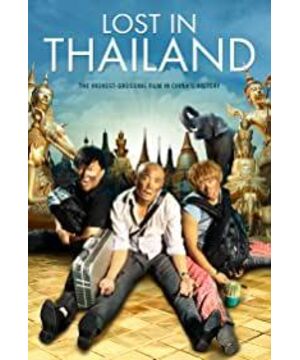Of course, this is a gentleman's belly. The average level of Thailand's film industry is far higher than that of domestic films. The genres are rich in appearance and well-made. The scale of Thai films is also very broad. The outline of the meeting will be launched. Besides, it is estimated that the chance of Thai audiences seeing "Thailand" is very small.
At the end of the last century and the beginning of this century, there was a wave of "post-colonialism" in the cultural world. It is a grand academic project to identify and analyze its conceptual connotation. This article is unable to repeat it, but only takes its general meaning at the level of popular culture: in politics, After the military colonization, the developed countries in the West adopted the strategy of cultural colonization of the Third World. They expressed themselves as the center and model of world culture, while non-Western national cultures were often derogated as marginal cultures and ignorant cultures. The above phenomena are often hidden in the narrative of Western centralism, especially mass cultural products, such as movies, TV, animation, novels, etc. The postcolonial perspective is already a sharp edge for analyzing Western cultural hegemony.
China quickly and without error appropriated the buzzword "postcolonial" and used it to examine the meaning of Chinese images in Western films. It is clear that in Hollywood, the centrality of Anglo-Saxon is self-evident. In other words, China's image is more of a folk spectacle, or an advertising strategy for "political correctness" or marketing.
Applying this "post-colonial" analysis method, in "Thailand", Thailand seems to have become a fun-loving mirror of folk spectacle relative to China. Of course, the basic audience of "Thailand" is set in China, which is tailor-made for the Chinese audience, and the whole story is also in Chinese. But Hollywood actually mainly serves their local market. Many Hollywood movies that we criticize with "post-colonial" swords originally speak English, and they don't take you too seriously at all. Death beggars must be seen.
In "Thailand", the journey scenery in Thailand is concentrated in the countryside and mountains, and there are almost no urban buildings. The basic conflict and main joke of the film come from the contradiction between the two protagonists of different identities and classes: one is Senior white-collar workers from Beijing who are fluent in English, earn a lot of money, and hold the secrets of high-tech inventions - in the current era of "production frenzy", economy and technology are the two major indicators of value. There is no doubt that our Beijing white-collar workers are in Both of these two evaluation systems are superior to others; the other is a migrant worker-like tourist, who does not speak English and sells scallion pancakes for a living. Obviously, this man has no particularly enviable economic income. Not to mention any emerging technologies. Thus, upper-lower, smart-stupid, culture-vulgar, this series of labels of binary opposition, runs through the beginning of "Thai Embarrassment". It should be said that this is the basic routine of commercial comedy films. As early as the silent film period, Hollywood's Laurel and Hardy were such partners, which have a long history and have been tried and tested.
The audience's sense of identity is actually mainly concentrated on the senior white-collar workers. This "successful person" projects collective desires, and he is forced to go with the migrant worker-style "ALICE". The "hillie" is naturally made fun of Objects (which also serve as chicken soup for the soul of the former). When the white-collar workers entered the countryside and mountains, the "backward" Thailand formed an ingenious echo with the migrant workers, and it also represented that the urbanites came to another unfamiliar world. At this time, an ugly adventure kicked off.
"Thailand" has completed a post-colonial counterattack. Chinese tourists have become strong foreign intruders (although they have also been teased), and the Thais are completely outside the story in the film. They are either dumb The passers-by are either ferocious bandits or simple villagers—this is almost in line with the post-colonial expression we criticize, except that it is no longer Western-centrism, but a kind of “China-centrism”.
I am used to criticizing others. Sometimes it is very interesting to measure myself with the same ruler.
(Published in the 49th issue of Nandu Weekly, 2012)
View more about Lost in Thailand reviews











